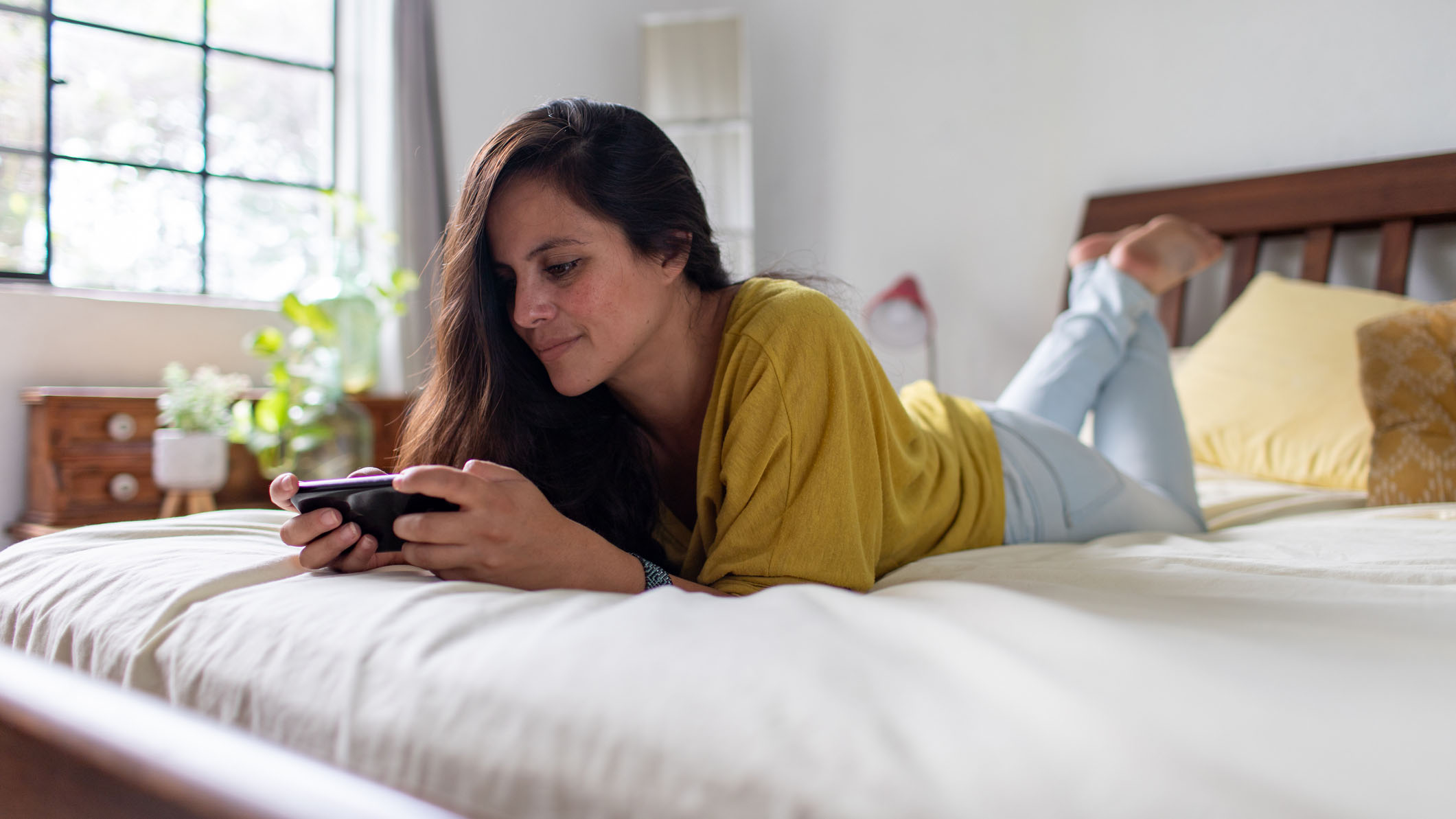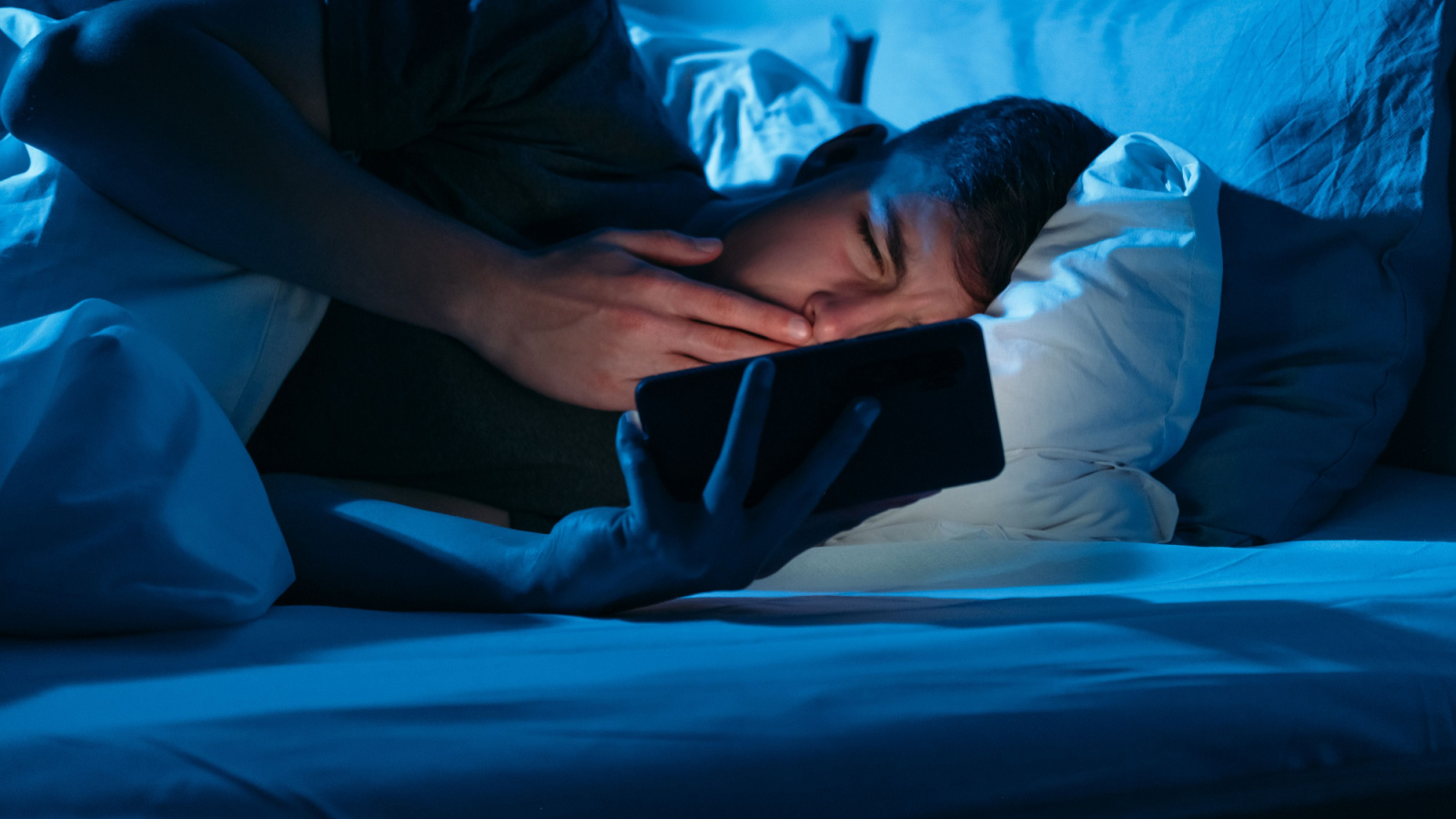
To mark Stress Awareness Day, experts are revisiting an enjoyable way to reduce stress for a better night’s sleep: playing Tetris before bedtime can actually improve your sleep quality and help you fall asleep faster, as you'll be much more relaxed.
The original study, conducted by Dr. Jane McGonigal, found that the puzzle game trains the brain to relax. Courtney Beatey, of psychology advice website PracticalPie, explained how this “Tetris Effect” on our minds can improve our sleep. There is a catch though: you should stop playing it about 60-90 minutes before you go to sleep, otherwise blue light from your device could disrupt your sleep.
Introduced in the 1980s, Tetris is a popular puzzle game requiring players to rotate falling tiles to create horizontal lines of blocks.
“The key is to train our minds to concentrate on relaxing thoughts and images associated with sleep,” says Beatey. "Once the brain is used to focusing on these images repeatedly, we are less likely to get distracted by stressful thoughts.
She continued: “Repetitive actions like meditating or even visualising Tetris blocks falling into place will instruct our brain to recognise these moments as prerequisites for sleeping.”
Beatey also describes how the effect can help defend us from negative thoughts, as our natural tendency is to remember negative events better than pleasant ones. This habit is called ‘negativity bias’. Beaty explains: “For example, by regularly practising gratitude we can train our brains to remember the positive sides of events and get rid of a negative mindset.”
What is the Tetris Effect?
Introduced in the 1980s, Tetris is a popular puzzle game which requires players to rotate falling tiles to create horizontal lines of blocks. It became so popular and “addictive” that it began having a significant physiological impact on its players.
Jeffrey Goldsmith, of Wired Magazine, dubbed this influence “The Tetris Effect”. He explained that the effect occurs when players begin to see Tetris patterns in real-life objects, such as furniture and buildings, after playing the game for an extended time.
Does blue light affect sleep?
While Tetris can help us de-stress in time for bed, it’s important to remember that playing video games exposes us to blue light – which can have adverse effects on our sleep patterns.
According to an article published by Harvard Medical School, blue light (the light from our screens which carries blue wavelengths) can disrupt our circadian rhythm (biological clock) and negatively impact our sleep quality.

The publication explained that any light at night can decrease secretion of melatonin, a hormone that influences our sleep patterns, but blue light is more powerful than the light of a table lamp, for example.
“Light at night is part of the reason so many people don't get enough sleep,” Stephen Lockley, a Harvard sleep researcher, told Harvard Health Publishing.
So does that mean you should ditch playing a relaxing game of Tetris before bed? Claire Davies, a Certified Sleep Science Coach for Tom’s Guide, says that you can still play some Tetris in the evening – as long as it’s not too close to bedtime.
“Blue light is emitted by phone, tablet, TV and laptop screens, and that light can disrupt our natural sleep cycle by inhibiting the production of melatonin (the sleepy hormone),” notes Davies. “Reducing exposure to blue light around 60-90 minutes before bed helps your body prepare better for sleep.”
Do blue light-blocking glasses work for sleep?
While there are orange lens glasses that purport to block out blue light, the jury is still out on whether these glasses are actually effective. A 2021 study did show that these lenses may benefit some people who suffer with insomnia, but neuroscientist Dr. Steven Lockley says that more research is needed. In an article published by Harvard Medical school, Dr. Lockley argues there's not enough detail about the studies to draw that conclusion.
“The timing, duration, and nature of the nighttime light exposure in the summary of these studies was not clear,” the School explained.
Tips to help you fall asleep faster
You can establish good sleep hygiene (or, put simply, habits that improve sleep) by following these sleep tips:
1. Establish a consistent sleep schedule: If you set your alarm at the same time every morning and go to bed at the same time every night – even on weekends – this will regulate your body’s sleep cycle. If this seems daunting, check out our guide on how to reset your sleep schedule.
2. Make your bedroom conducive to sleep: It’s not just about what time you go to bed that’s important to sleep hygiene – it’s the bed itself. Investing in the best mattress and best pillow for your body and sleep position can vastly improve your sleep quality.
3. Create a relaxing bedtime routine: Try unwinding with a warm bath or shower, swapping your phone screen for a relaxing book, and dimming the lights.
4. Eat and drink sensibly throughout the day: Avoid eating spicy meals and drinking alcohol or caffeine, and don’t eat too much so close to your bedtime. Instead, try having a light healthy snack.
5. Make exercise part of your daily routine: As little as 30 minutes of exercise per day can lead to a big improvement in the quality of your sleep. If you’re looking for a nice, relaxing workout before bed, try a bedtime yoga routine.







